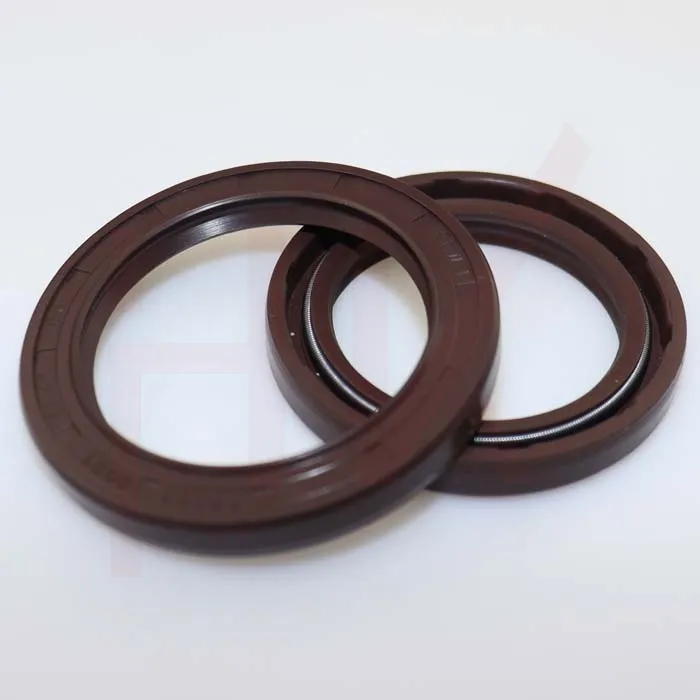Aug . 30, 2024 07:39 Back to list
High-Quality Hydraulic Ram Oil Seals | Durable and Reliable Sealing Solutions
Understanding Hydraulic Ram Oil Seals
Hydraulic ram systems are essential components in various industrial and agricultural applications, where they facilitate the efficient transfer of power through liquid. A critical aspect of these systems is the use of oil seals, which play a vital role in maintaining system integrity and performance.
What Are Hydraulic Ram Oil Seals?
Oil seals in hydraulic rams are specially designed components that prevent the leakage of hydraulic fluid between the different components of the ram. These seals are typically made from durable materials, such as rubber or synthetic compounds, which can withstand high pressures and varying temperatures. The primary function of these seals is to retain the hydraulic fluid inside the system, ensuring that the ram operates smoothly and efficiently.
Importance of Oil Seals in Hydraulic Rams
1. Leak Prevention The most critical function of hydraulic ram oil seals is to prevent fluid leakage. Any loss of hydraulic fluid can lead to reduced efficiency, increased wear on components, and potential system failure. By effectively sealing the internal components, these seals maintain the necessary pressure for optimal operation.
2. Contaminant Exclusion Oil seals also keep contaminants, such as dust, dirt, and moisture, from entering the hydraulic system. These foreign particles can cause abrasive wear and corrosion, significantly shortening the lifespan of the hydraulic ram. A good seal acts as a barrier, ensuring that only clean fluid circulates within the system.
3. Maintaining Pressure Hydraulic systems rely on maintaining a specific pressure to function correctly. Oil seals help preserve this pressure by creating a tight barrier against the escape of fluid. Any drop in pressure can lead to decreased performance, making it vital for these seals to perform effectively.
hydraulic ram oil seals

4. Reduction of Maintenance Costs By preventing leaks and contamination, hydraulic ram oil seals reduce the need for frequent maintenance and repairs. This leads to lower operational costs and less downtime for equipment, thereby improving overall productivity.
Common Types of Hydraulic Ram Oil Seals
There are various types of oil seals used in hydraulic rams, each designed to suit specific applications and operating conditions. Some common types include
- Lip Seals These seals have a flexible lip that makes contact with the shaft or housing. They are excellent for resisting high pressures and offer effective sealing against external contaminants.
- U-Cups U-Cup seals have a shape that resembles a U and are often used in applications with low to moderate pressure. Their design allows them to provide a good sealing effect while accommodating slight misalignments.
- O-Rings A more versatile sealing option, O-rings can be used in various applications within hydraulic rams. They are circular and provide a simple yet effective seal against fluid leakage.
Conclusion
In summary, hydraulic ram oil seals are indispensable components that ensure the efficiency and longevity of hydraulic systems. By preventing fluid leakage, excluding contaminants, and maintaining pressure, these seals contribute significantly to the overall performance of hydraulic rams. Investing in high-quality oil seals not only enhances operational reliability but also minimizes maintenance needs, making them a vital consideration for anyone working with hydraulic equipment. As technology advances, the materials and designs of hydraulic ram oil seals continue to improve, ensuring that they meet the evolving demands of various industries.
-
Wiper Oil Seal: Our Commitment to Clean Hydraulics
NewsAug.13,2025
-
Hydraulic Oil Seal for Self Discharging Cars
NewsAug.13,2025
-
Hub Oil Seal for Agricultural Tractor Hubs
NewsAug.13,2025
-
Skeleton Oil Seal with NBR Material
NewsAug.13,2025
-
Rotary Lip Seal for High Pressure Applications
NewsAug.13,2025
-
Cylinder Seal Kits Our Legacy of Hydraulic Trust
NewsAug.13,2025
-
Unlocking the Potential of Hydraulic Systems with Essential Sealing Solutions
NewsAug.06,2025
Products categories
















